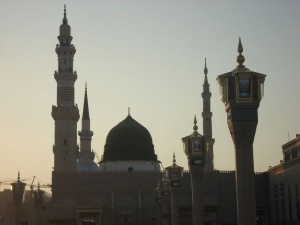AHIC 2015: JLL argues for long-term bet on Middle Eastern hospitality

JLL’s Hotels & Hospitality Group has released its 2015 Middle East Hotel Intelligence Reports for the key markets of Dubai, Abu Dhabi, Doha, Jeddah and Riyadh at the Arabian Hotel Investment Conference in Dubai.
Amid strong international appetite for hotel assets in the Unites States, Western Europe and Asia Pacific, the Middle East and Africa region continues to witness solid hotel development activity and destination building.
The UAE is expected to retain its status as the region’s main tourist hub with active and differentiated strategies being implemented in other countries in the region such as Saudi Arabia, Oman and Qatar.
Hotel assets continue to be favoured by sophisticated investors and require the right level of professional expertise whether internal or third party provided.
Chiheb Ben-Mahmoud, head of Hotels & Hospitality Group, Middle East & Africa at JLL, said: “While Dubai hotels ADR’s and occupancy rates have been declining, their levels remain strong and healthy and can be expected to improve the competitive position of the city compared to other competing and established destinations in Europe and Asia.
ADVERTISEMENT
“Dubai continues to strengthen its position as a leading tourism destination in the Middle East due to its ease of access, quality branded hospitality offering, modern infrastructure, leisure and entertainment options and safe environment.”
Ben-Mahmoud continued: “More generally, the Middle East and Africa region continues to witness strong hotel development interest with differentiated and diverse strategies, supported by strong infrastructure programmes as well as niche and specialized hospitality offerings such as heritage, boutique and retreat hotels.”
The trend of Dubai being seen as a global business and leisure destination should continue in coming years, backed by the government’s pro-tourism initiatives. Investors are confident in the potential of the UAE, especially Dubai and Abu Dhabi as they have implemented ambitious growth strategies.
Dubai leads the tourism and hospitality market and has plans to attract 20 million tourists annually by 2020 leading up to the World Expo.
Dubai hospitality has shown competitiveness adjustments, resulting in lower ADR’s and occupancy rates which remain at healthy and strong levels.
Abu Dhabi hospitality is witnessing positive recovery amid a stabilization of the supply and the growing impact of the leisure and entertainment sectors.
Due to the nature of Doha’s room supply which is heavily skewed towards luxury properties, Doha is able to yield high average room rates for the region; however they have been under pressure and decreasing since 2008.
This pressure will be compounded further by the 15,400 new rooms in the pipeline which represent a doubling of total stock in the coming years.
Development of leisure tourism will remain critical to the long term tourism growth in Doha particularly beyond the 2022 FIFA World Cup event.
Demand may be affected in the coming months by the decrease in oil prices since KSA’s economy is largely based on oil exports.
Moreover, the numerous new entrants to the market will affect performance and we expect average rates to decline further during 2015.

